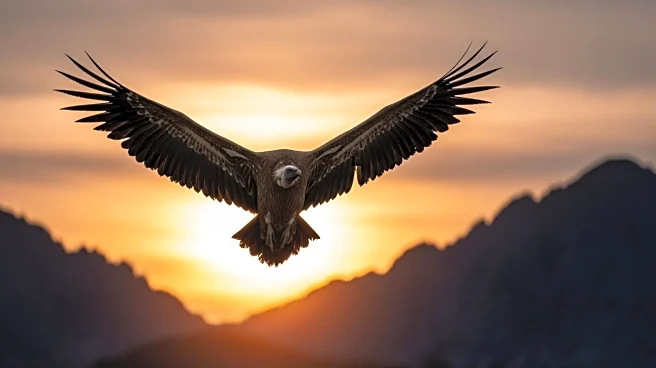What's Happening?
The Eurasian griffon vulture population in Israel is critically endangered, with only around 200 birds remaining. Conservation efforts, including satellite tracking and feeding stations, are being implemented to protect the species. Prof. Or Spiegel from Tel Aviv University highlights the ecological importance of these vultures, which help prevent the spread of disease by consuming livestock carcasses. Despite these efforts, threats such as poisoning, electrocution, and habitat disturbances continue to endanger the vultures. The Israel Nature and Parks Authority is actively working on conservation programs to support the species.
Why It's Important?
The decline of the griffon vulture population in Israel poses significant ecological risks, as these birds play a crucial role in maintaining the balance of the ecosystem by cleaning up carcasses. Their disappearance could lead to increased disease spread, similar to the situation in India where vulture deaths led to rabies outbreaks. The conservation of these vultures is vital for preserving biodiversity and preventing potential public health crises. The efforts to protect them also reflect broader environmental challenges and the need for sustainable practices.
What's Next?
Continued conservation efforts are essential to prevent further decline of the griffon vulture population. The Israel Nature and Parks Authority plans to enhance its programs, including breeding centers and wildlife hospitals. Public awareness and cooperation are crucial, as citizens are encouraged to report injured vultures and avoid using poisons. Long-term strategies may involve international collaboration to bolster vulture populations across regions.
Beyond the Headlines
The plight of the griffon vultures highlights the broader issue of human impact on wildlife and the environment. It underscores the need for ethical considerations in land use and agricultural practices. The situation also serves as a reminder of the interconnectedness of ecosystems and the importance of preserving natural habitats.









